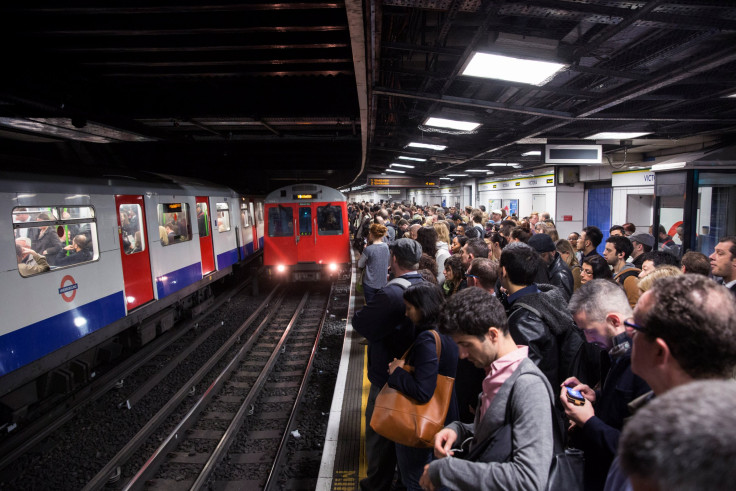Woman Trampled By Underground Train Commuters After She Collapsed From Rare Disorder

A woman suffering from Ménière's disease in England recently decided to speak out to raise awareness about the rare condition after people often mistook her for being drunk. In an interview with Daily News on Tuesday, the woman said she was once trampled by underground commuters after she collapsed, mistaking her for being drunk.
Kelly Boyson, 31, said some of the symptoms of the condition include extreme vertigo, which results in her falling on the floor. The attack lasts up to four hours.
Remembering one such incident, Boyson said, she had one such attack while traveling on a London underground train. When it happened, none of the commuters gave her attention. Instead of offering help, they stepped over her, thinking she was drunk.
“An ambulance was called but they said I wasn't an emergency due to the fact the spinning would pass. It was the morning rush hour and people were just walking over me because, to them, I looked drunk. In the end, a transport police officer took me to the hospital in a taxi,” she said.
“If you can't see the illness or disability, most people don't believe it's there. None of us know what's happened to the person next to us and they may look fine, but underneath that smile might be something different,” she added.
The symptoms began while she was working in 2014. Things started spinning while she sat on the chair, however, she ignored it thinking it was because of not eating enough. This, along with an ear infection, continued regularly for months, until an ENT specialist diagnosed her with Ménière's disease. Her condition started getting worse with her losing pressure in her ears and getting extreme vertigo.
"There isn't any specific treatment for Ménière's disease and there's no cure. I had betahistine tablets initially and then over six weeks I had to have three steroid injections through my ear drum, but they didn't help. Now I have a grommet in my ear; I'm on my third one and they last for about a year. I was having drop attacks up to four times a week which meant I couldn't go out alone as it could happen anywhere, which was dangerous; I was housebound for 18 months,” Boyson said.
She also recalled another attack when she was at a nightclub. Her friends had to plead the bouncers not to throw her out as they too mistook her being drunk.
“I wasn't allowed to lock doors so people could get in to help me in an emergency. I couldn't go out alone in case an attack happened in the middle of the road,” she said.
The disease changed her life completely and also forced her to quit her job. It took her almost two years to get used to the new lifestyle.
“When I was diagnosed, I had never heard of Ménière's disease. When something like this happens that's all you need to know – to have others who understand exactly how you're feeling. People need to think about what they say and not be judgmental – that person getting out of their car in the disabled space who looks better than you do probably struggled to get out of bed or to shower. They probably have a serious illness you've never heard of and will probably never understand. Judging them from afar isn't fair,” she added.
She has now started an Instagram account to raise awareness about the rare condition.
© Copyright IBTimes 2025. All rights reserved.





















